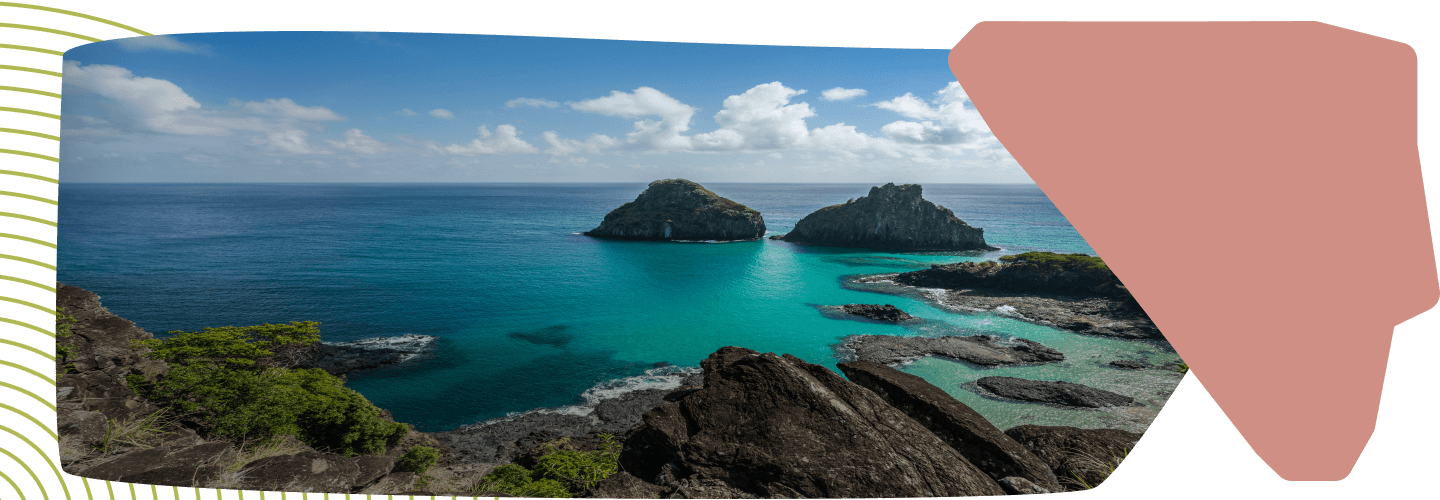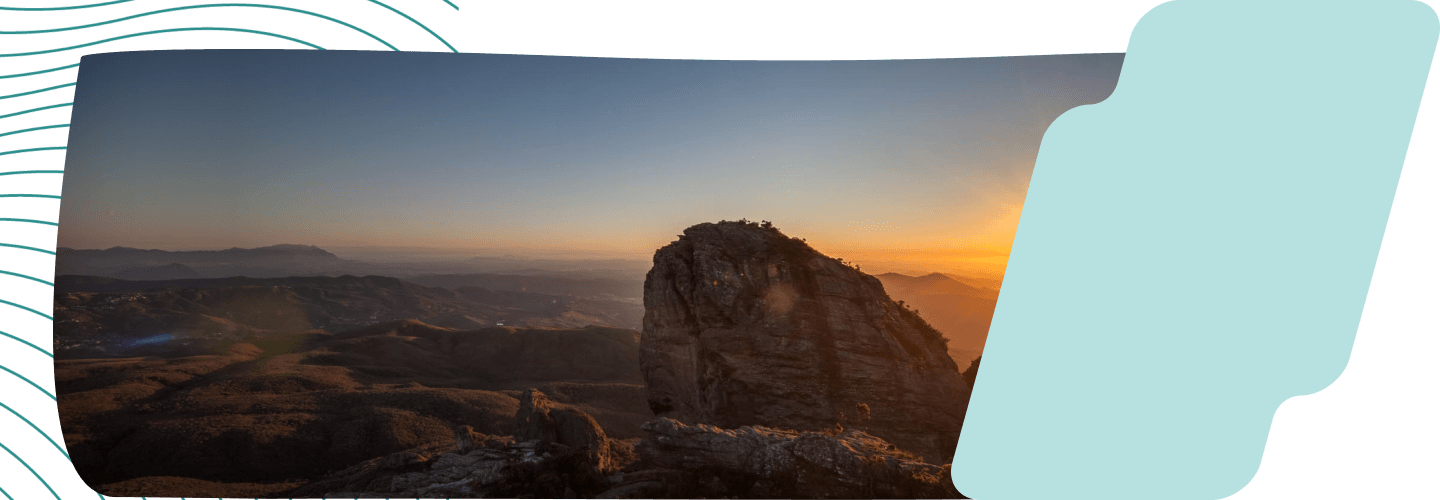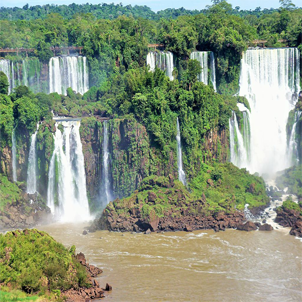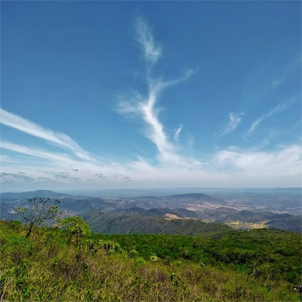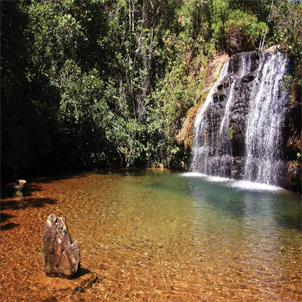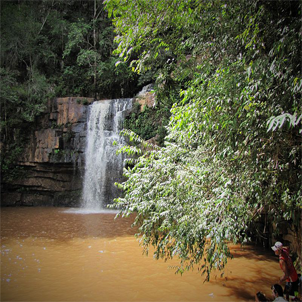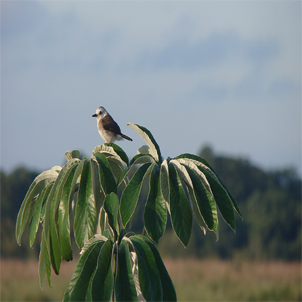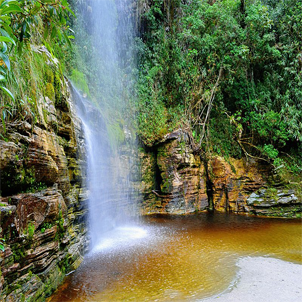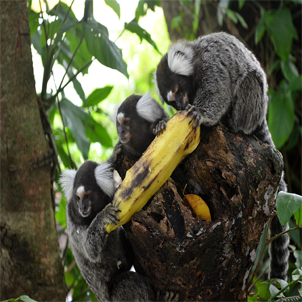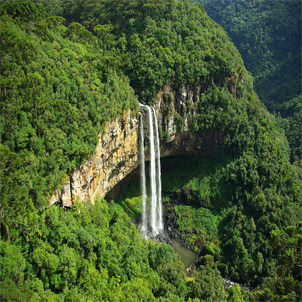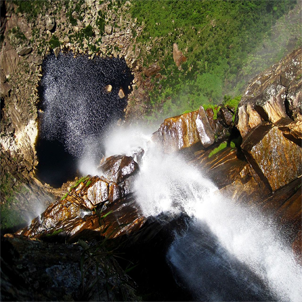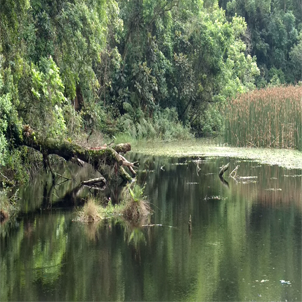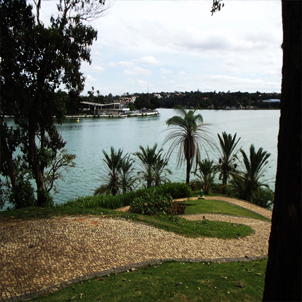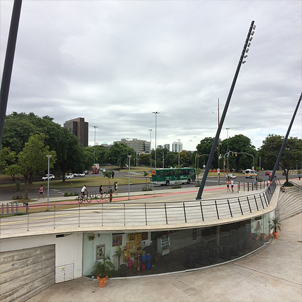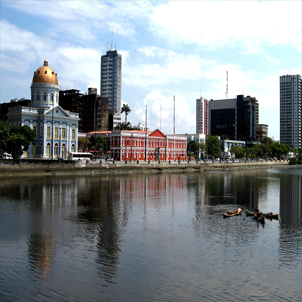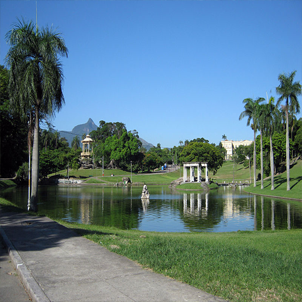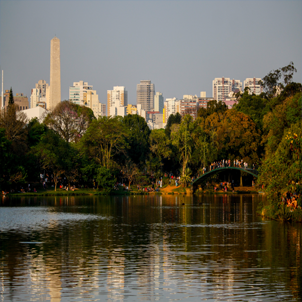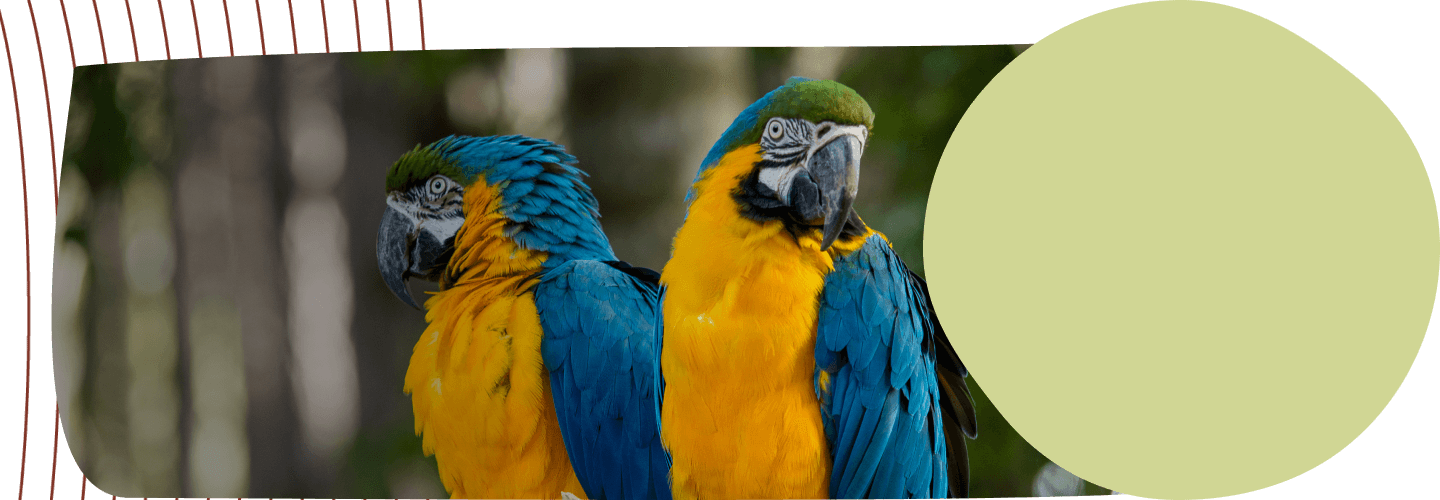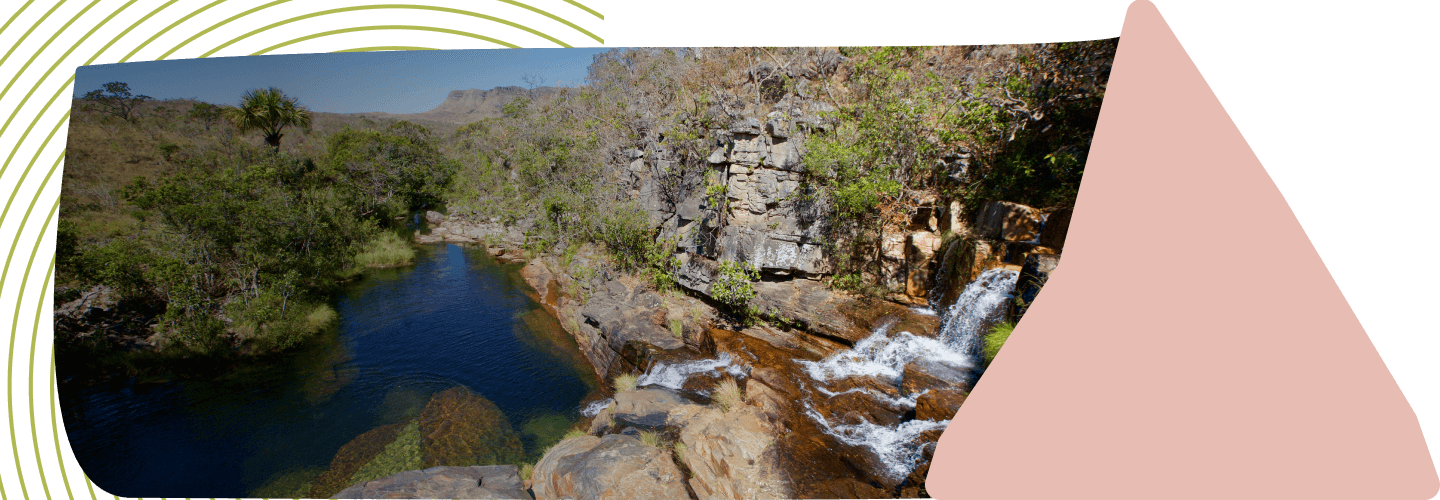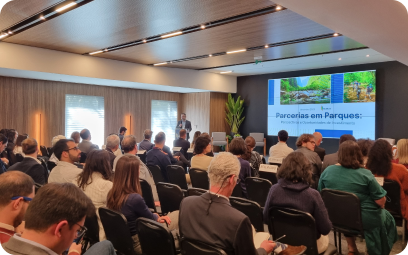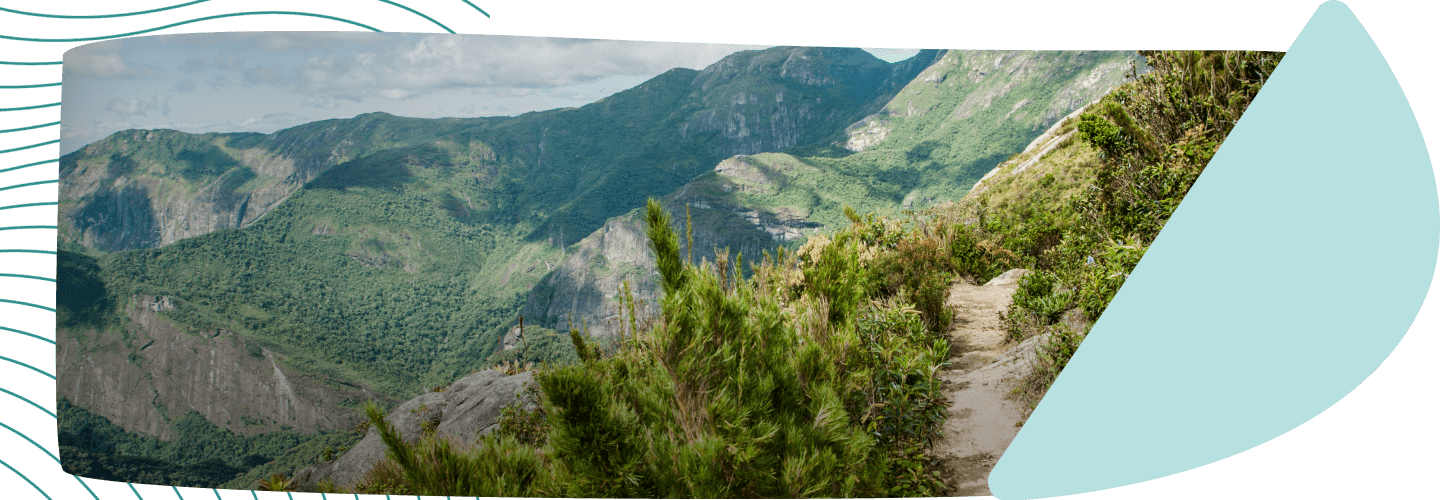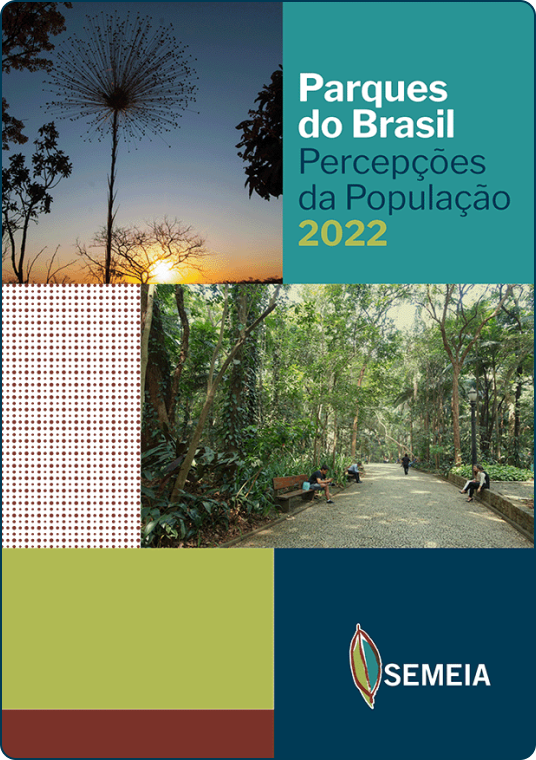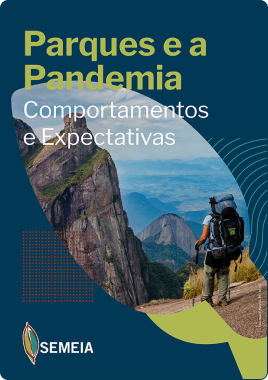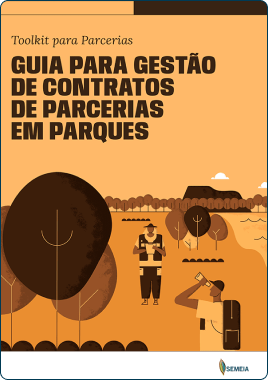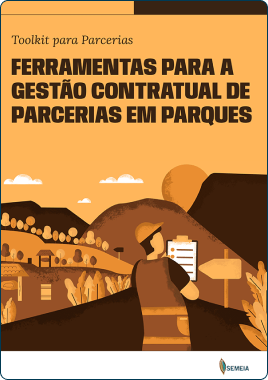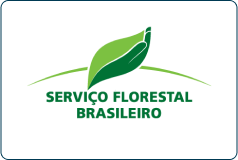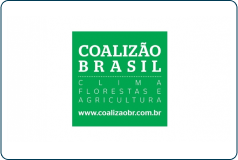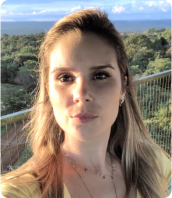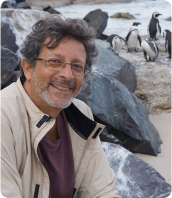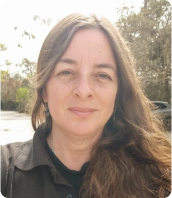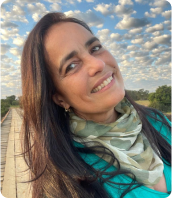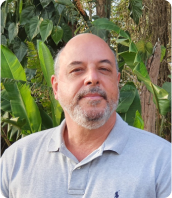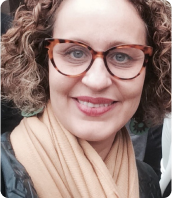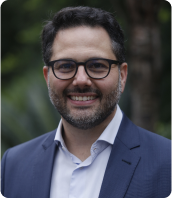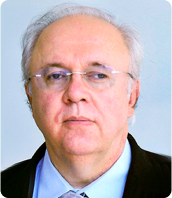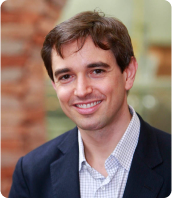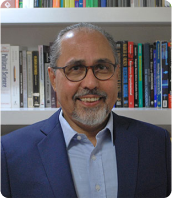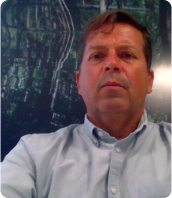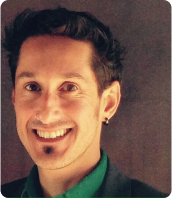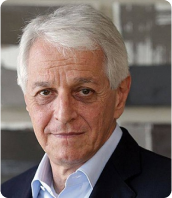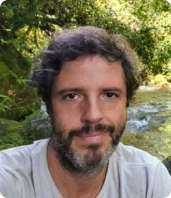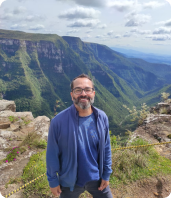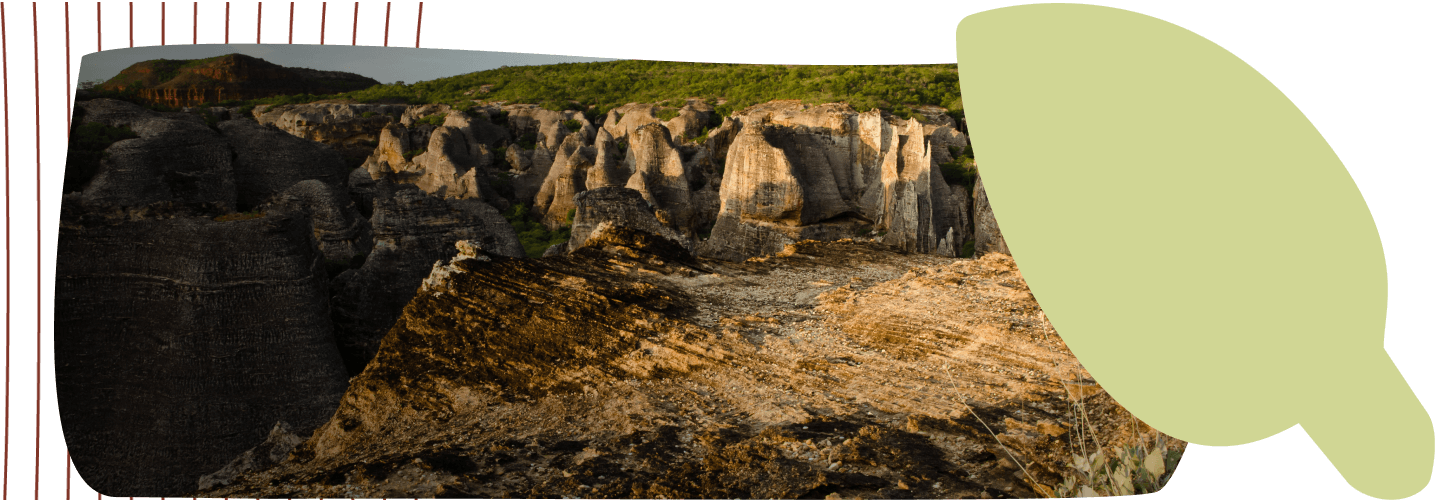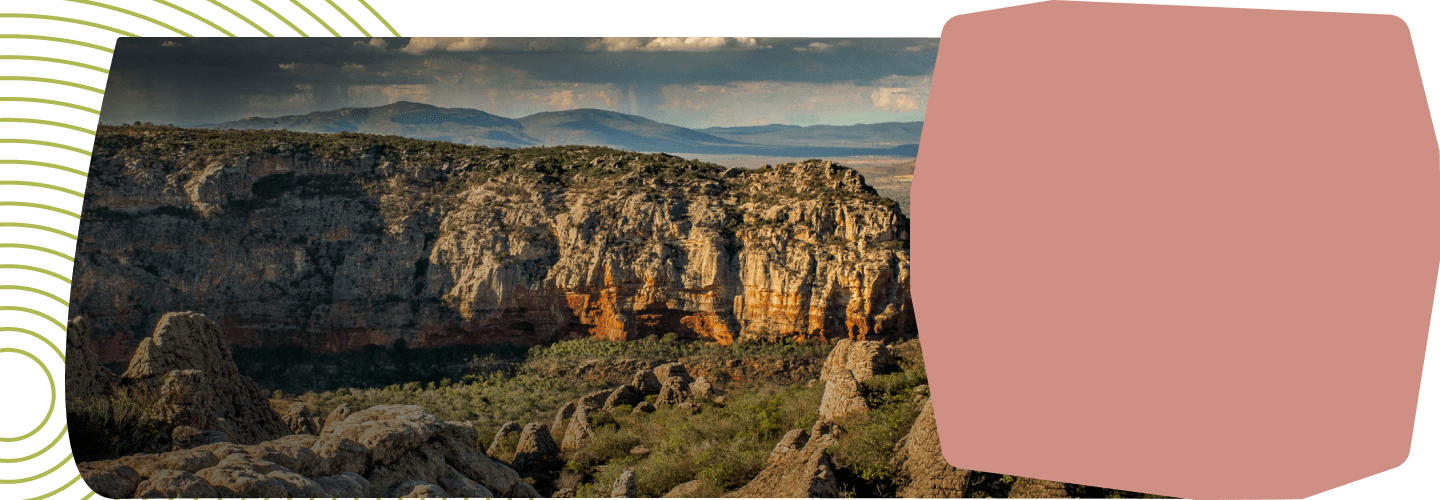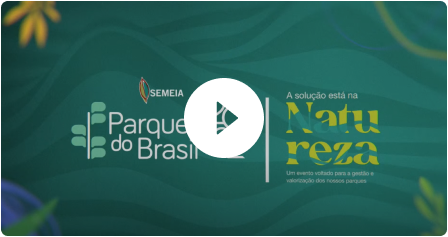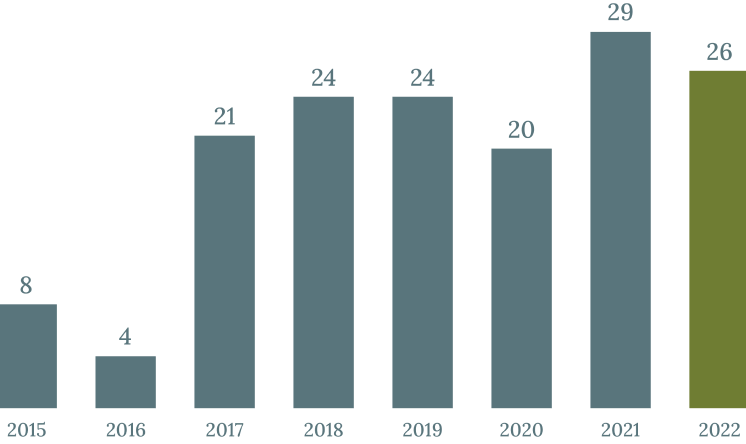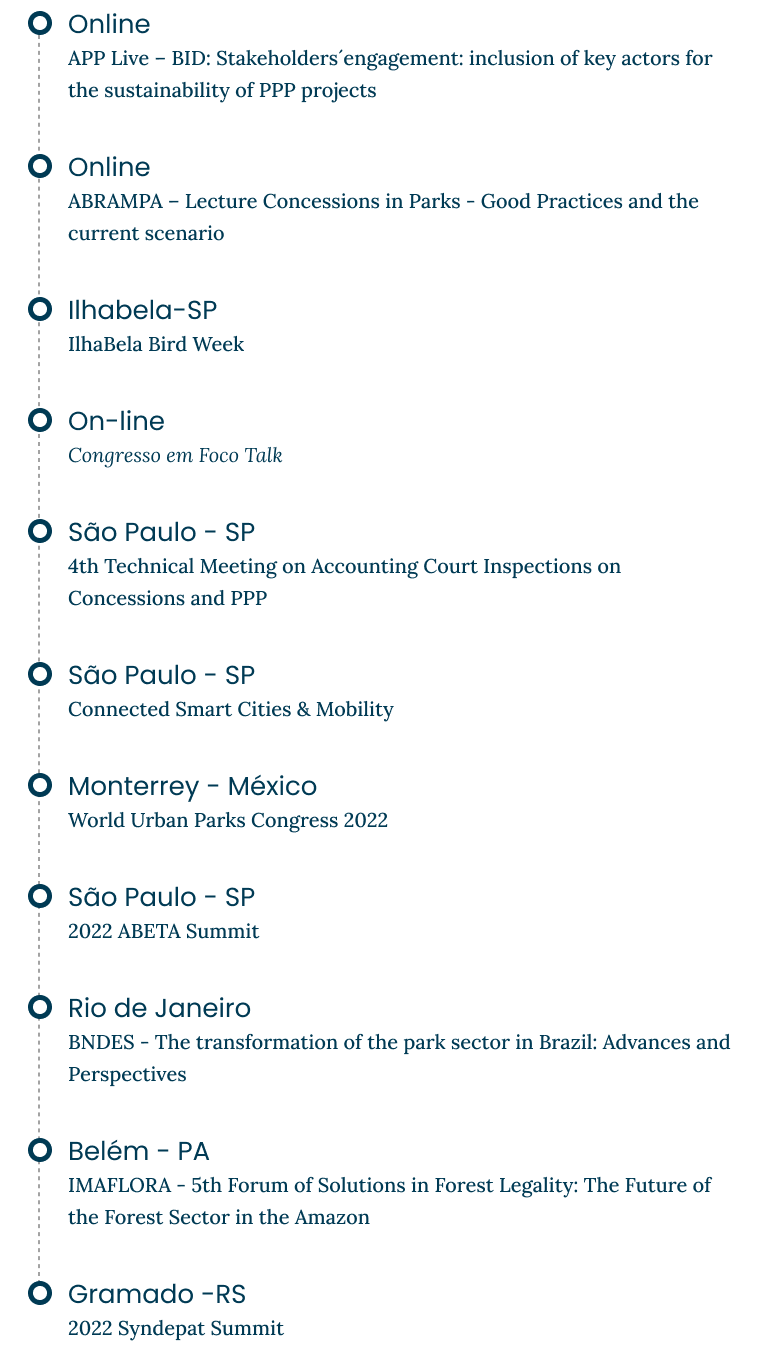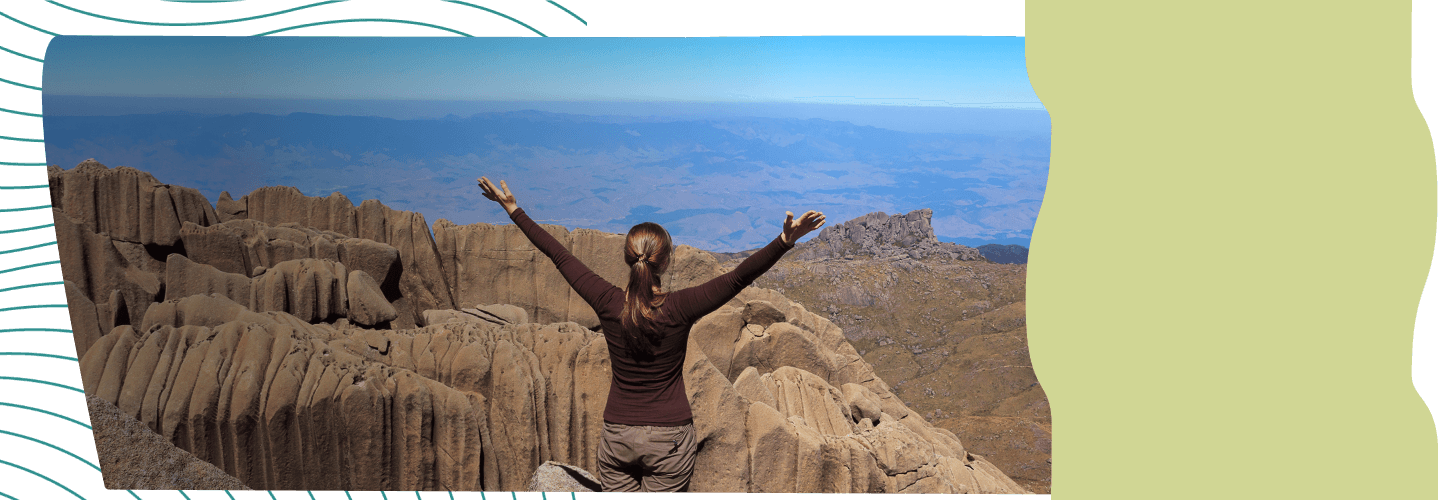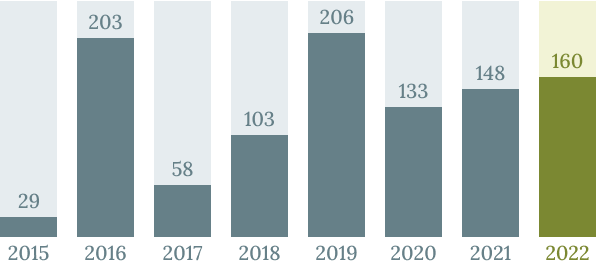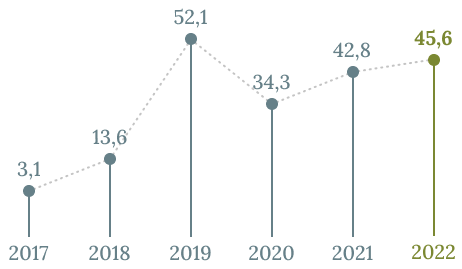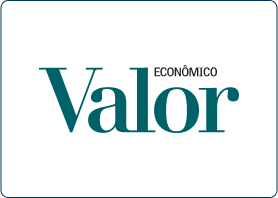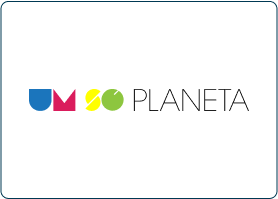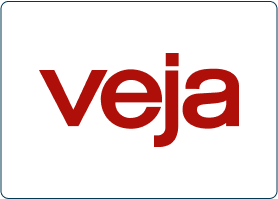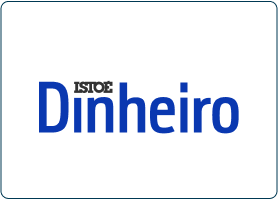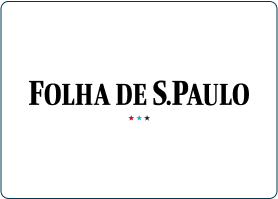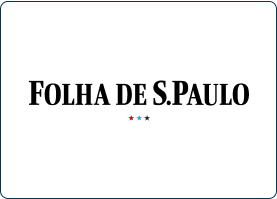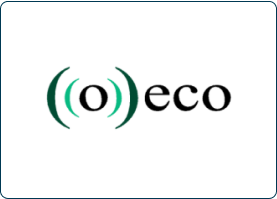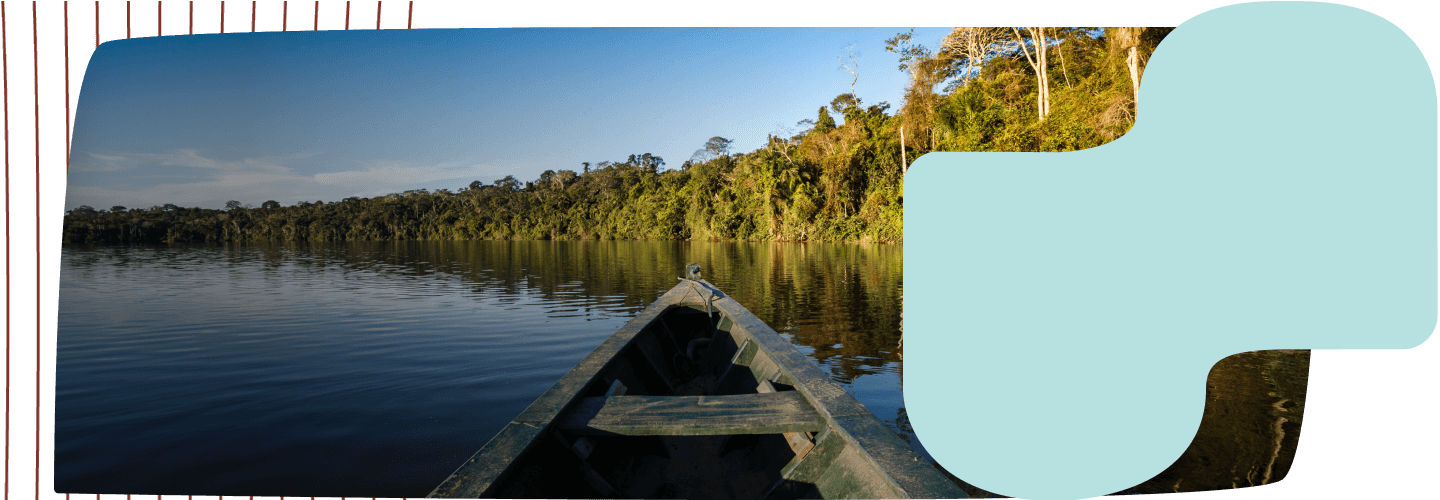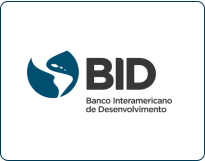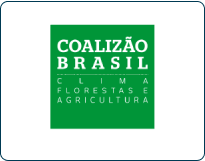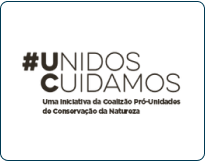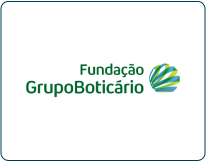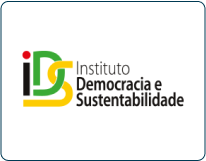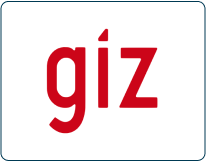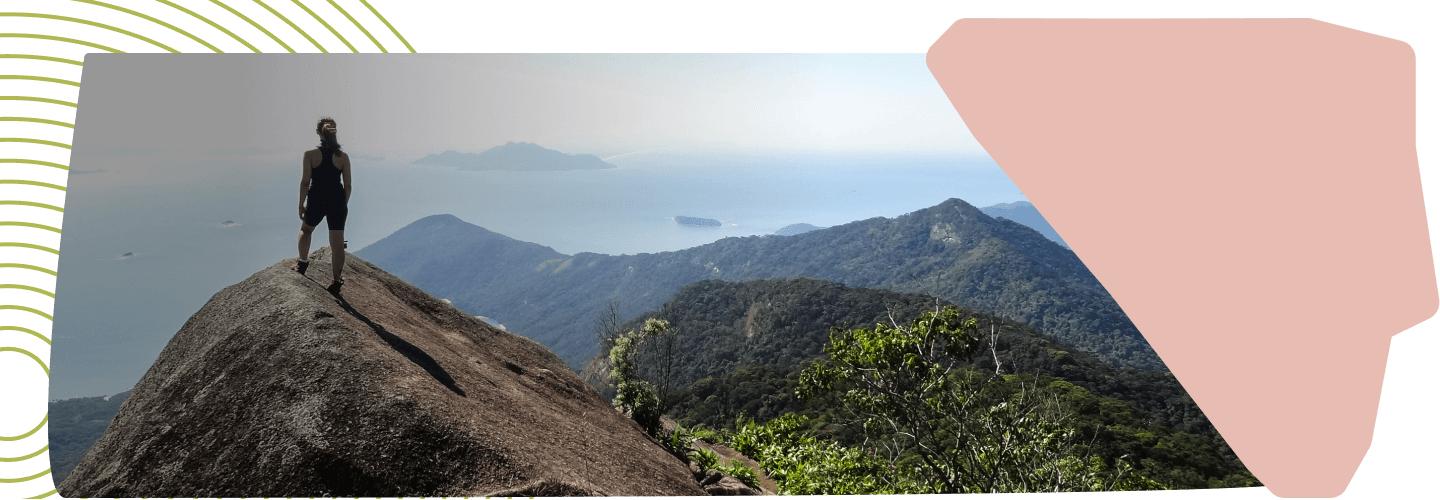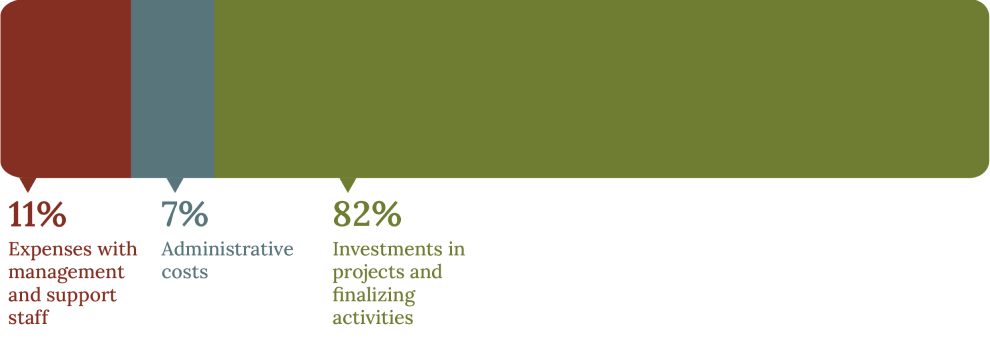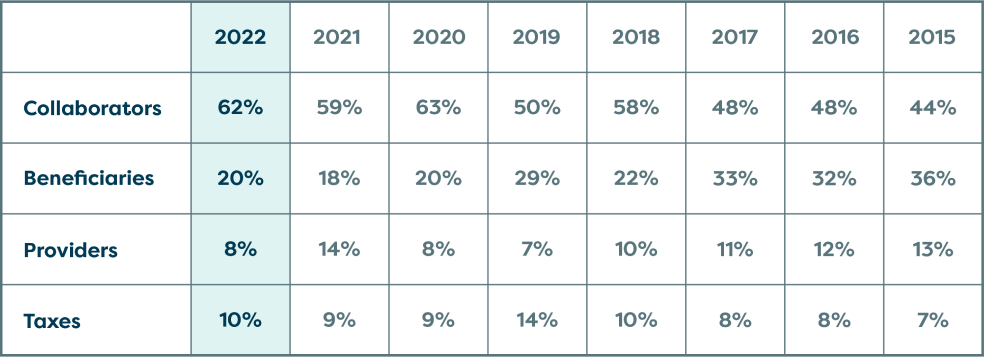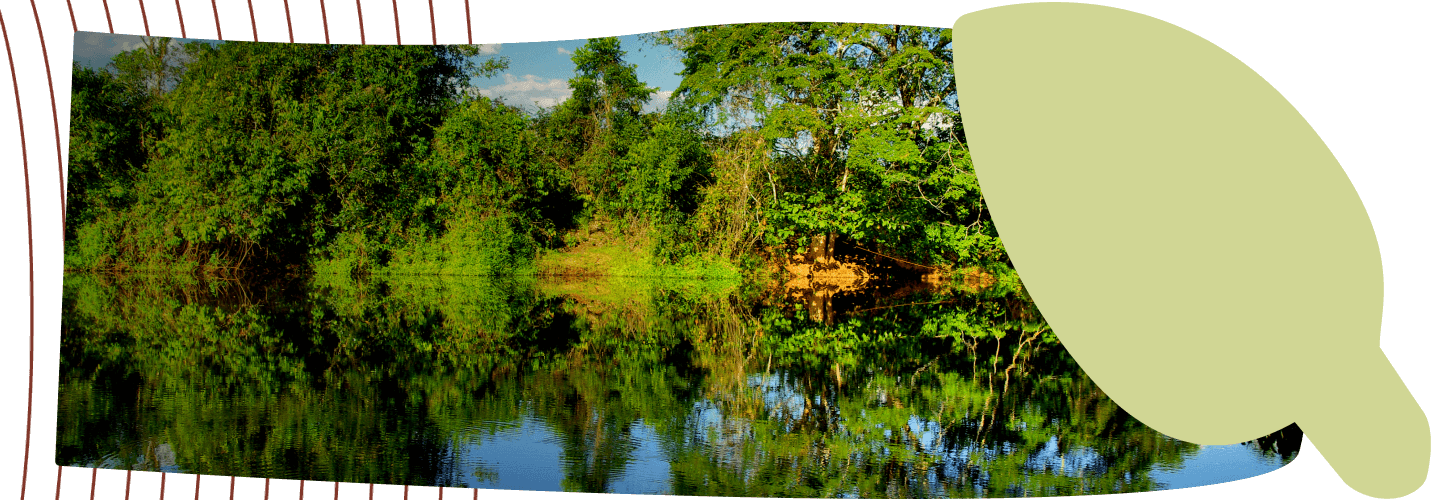As recorded in the Parks as Vectors of Development for Brazil study, these spaces can generate one million jobs and move BRL 44 billion annually. In addition to the positive economic impact, valuing parks directly relates to society recognizing the value of environmental services, which are fundamental to our survival. It also prompts awareness of conservation units’ and urban green spaces’ vital roles in the resilience and balance of the planet and the people’s quality of life. That context further reinforces the need to create innovative solutions to overcome together the socio-environmental challenges facing the world.
In 2022, our Partnerships Map accumulated 41 tendered partnerships since 2012, many already in operation. Those partnerships will mobilize an estimated BRL 1.4 billion in investments, forecasted to generate over BRL 23 billion in revenue in the next 40 years. Those perspectives remain promising, with 68 parks (14 national, 28 state, and 26 municipal) with partnerships in the structuring process. Significant advances were made last year in urban parks in the State of São Paulo (Água Branca, Villa Lobos, and Cândido Portinari) and in iconic natural state parks such as Caracol, Tainhas and Turvo (Rio Grande do Sul), Ibitipoca and Itacolimi (Minas Gerais), and Conduru (Bahia).
The federal level also saw the renewal of the Iguaçu concession, which gave visibility to and incorporated important innovations with partnerships in recent years. That progress was essential for them to become increasingly more robust vehicles for inducing conservation and development policies.
Consequently, that process can be measured by the substantial increase in interested project investors, demonstrating that the economy and the environment can indeed walk together towards a greener, fairer, and more sustainable future. How these projects are regulated has also evolved to facilitate the integration of natural spaces with their surroundings, thus favoring actions to promote conservation and the development of local communities.
Dealing with these new administrations at their different levels shows that this policy of investing in and improving parks has become a societal demand, regardless of political guidelines.
There have been several noticeable advances. Many of them resulted from the joint effort of Semeia and the Brazilian Bank of Economic and Social Development (BNDES), which, besides the parks, included support for the Brazilian Forest Service in eight concession projects in the Amazon and Atlantic Forests. That new work front has taken Semeia further into debating rings, such as the Brazilian Coalition on Climate, Forests and Agriculture, complementing prior work with other reference entities and collectives, such as Coalizão Pró-UC.
With the mission of making protected areas a source of pride for all Brazilians, we believe that we are building the foundations to significantly expand the population’s contact with natural and urban parks. In addition to ensuring investments, good management, and governance, we strive to make visiting such spaces a tasteful experience for everyone and part of their routine.
Likewise, we believe it is fundamentally important to bolster the management bodies we have trained and supported with specialized knowledge of the intricacies of contractual partnership management. We concurrently seek to monitor the impacts of the various initiatives in our parks and forests. We have been working to produce, systematize, and disseminate knowledge to improve public policies and foster informed debates on the subject with society.
In 2022, we developed actions such as the Leveraging Parks study, which highlights the need to improve the experience of visitors by understanding different user personas; and the Parks and Pandemic assessment, which sought to understand the impact of social distancing on the connection of Brazilians with nature and on their quality of life. We also moved forward with the third edition of the survey Brazil’s Parks: Public Perceptions 2022, which aimed to map and present Brazilians’ feelings about these spaces and to identify what motivates or deters them from visiting parks.
Our quality of life depends on harmony with the nature surrounding us and of which we are a part. Therefore, we are committed to improving conservation unit management and strengthening biodiversity protection and the population’s health and well-being. As such, and only as such, we can transform our environmental heritage into a vector of sustainable socioeconomic development.








